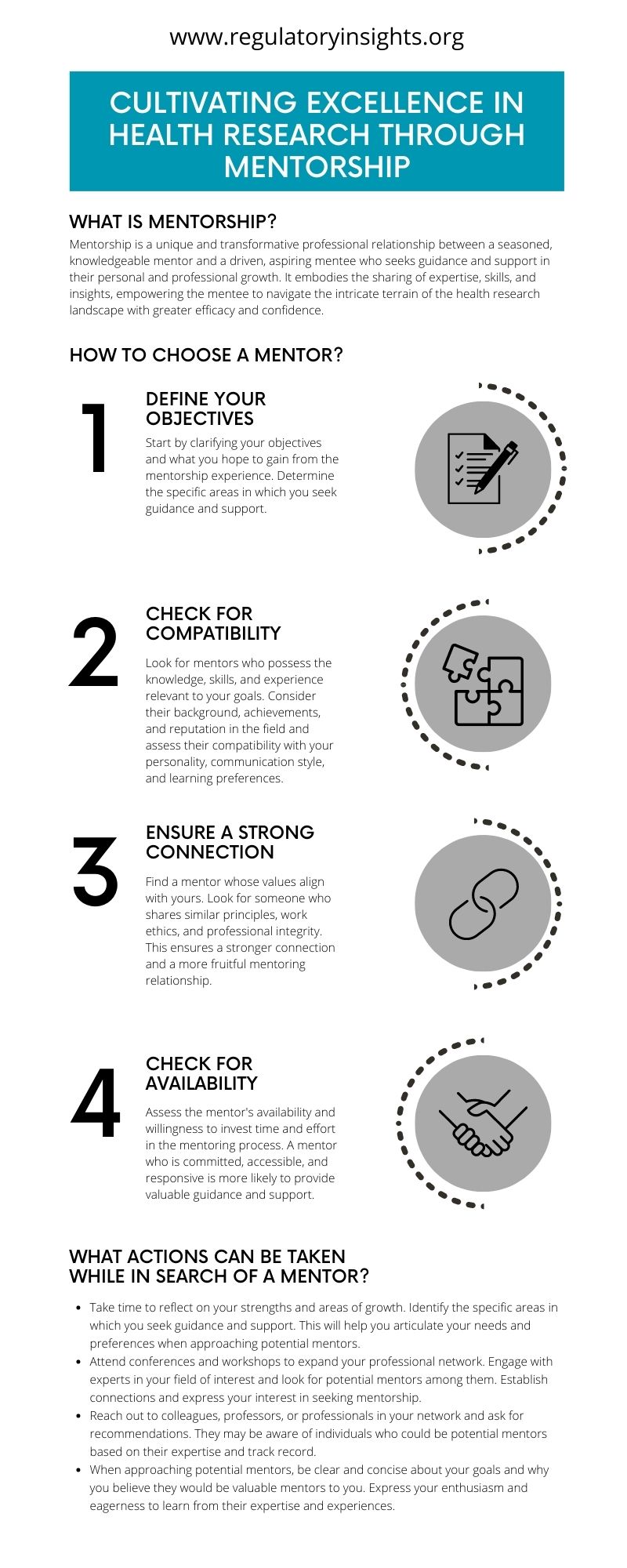Mentorship is a unique and transformative professional relationship between a seasoned, knowledgeable mentor and a driven, aspiring mentee who seeks guidance and support in their personal and professional growth. It embodies the sharing of expertise, skills, and insights, empowering the mentee to navigate the intricate terrain of the health research landscape with greater efficacy and confidence.
Recently, I received a new request to mentor, this time a young professional. As these requests for mentorship have become more frequent, it has prompted me to reflect on my mentorship journey. What initially began as colleagues and peers seeking my guidance and advice have evolved into profound mentor-mentee connections and demand for mentorship. This progression has underscored the impact I can have on others and reinforced how mentoring aligns harmoniously with my core values and personal fulfillment.
To be honest, mentoring was never something I had imagined for myself. However, as I witnessed the growth and development of my mentees, I discovered the immense reward that came with guiding others toward their goals. It fuelled my passion to deepen my knowledge and understanding to provide even better guidance and support. I learned to adapt my approach to cater to the unique needs and aspirations of each mentee, offering a listening ear and a safe space for open discussions about their ambitions, concerns, and goals.
Becoming a mentor not only had a transformative effect on the lives of those I guided but also enriched my own personal and professional growth. Through the mentorship journey, I gained a deeper understanding of different perspectives and expanded my network within the industry. Staying updated on emerging trends and challenges became crucial to offer relevant guidance. The mentorship experience served as a constant source of learning and self-reflection, pushing me to continuously refine my own skills and knowledge.
Throughout my mentoring journey, I have had the privilege of supporting professionals at various stages of their careers. From university students just starting out to individuals in senior leadership positions, each mentee brought unique experiences and challenges. Providing guidance during the early stages of their careers, assisting with skill development, and offering strategic advice during mid-career transitions and leadership roles has been particularly rewarding.
I believe this is my way to contribute to the future of health research. Through personalised guidance and support, my mentees will be empowered to excel in their roles and make significant contributions to the field. They will gain valuable insights, skills, and knowledge, enabling them to navigate the complex and ever-evolving landscape of health research with confidence and competence. As they grow and thrive, they become facilitators for innovation, driving forward discoveries, advancements, and solutions that improve healthcare outcomes and benefit society. Through mentorship, I contribute to the cultivation of a skilled and passionate workforce, fostering excellence in health research and ultimately leading to better health outcomes for individuals and communities.
How to choose a mentor?
If you are at a stage where you feel the need for guidance and support in your endeavours, seeking a mentor can be a transformative step. The process of choosing the right mentor is a critical one, as it requires thoughtful consideration and alignment of goals, values, and compatibility. Here are my insights and recommendations on how to choose a mentor:
- Start by clarifying your objectives and what you hope to gain from the mentorship experience. Determine the specific areas in which you seek guidance and support.
- Look for mentors who possess the knowledge, skills, and experience relevant to your goals. Consider their background, achievements, and reputation in the field and assess their compatibility with your personality, communication style, and learning preferences.
- Find a mentor whose values align with yours. Look for someone who shares similar principles, work ethics, and professional integrity. This ensures a stronger connection and a more fruitful mentoring relationship.
- Assess the mentor’s availability and willingness to invest time and effort in the mentoring process. A mentor who is committed, accessible, and responsive is more likely to provide valuable guidance and support.
What actions can be taken while in search of a mentor?
- Take time to reflect on your strengths and areas of growth. Identify the specific areas in which you seek guidance and support. This will help you articulate your needs and preferences when approaching potential mentors.
- Attend conferences and workshops to expand your professional network. Engage with experts in your field of interest and look for potential mentors among them. Establish connections and express your interest in seeking mentorship.
- Reach out to colleagues, professors, or professionals in your network and ask for recommendations. They may be aware of individuals who could be potential mentors based on their expertise and track record.
- When approaching potential mentors, be clear and concise about your goals and why you believe they would be valuable mentors to you. Express your enthusiasm and eagerness to learn from their expertise and experiences.
Finding the right mentor is a journey. Your mentor should inspire and motivate, instilling confidence and a sense of purpose. The bond between mentor and mentee fosters personal growth, self-awareness, and resilience. It empowers mentees to overcome obstacles, take calculated risks, and navigate their chosen paths with greater confidence and success. It should be a transformative experience, unlocking doors to new possibilities and shaping the mentee’s journey in profound and meaningful ways.

Finding the right mentor is a journey. Your mentor should inspire and motivate, instilling confidence and a sense of purpose. The bond between mentor and mentee fosters personal growth, self-awareness, and resilience. It empowers mentees to overcome obstacles, take calculated risks, and navigate their chosen paths with greater confidence and success. It should be a transformative experience, unlocking doors to new possibilities and shaping the mentee’s journey in profound and meaningful ways.